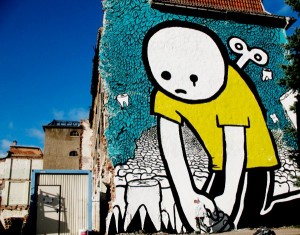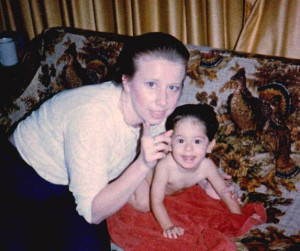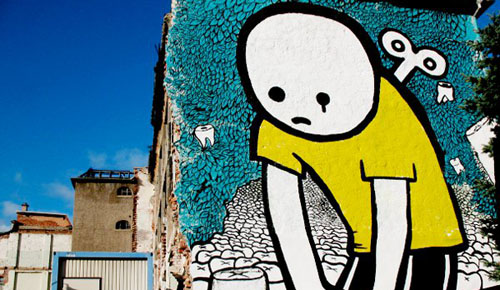
I don’t know why my mom died at the age of forty-nine because my father refused to allow an autopsy. His superstitious and deeply traditional beliefs mean I’ll never know the cause of my mother’s death. Was it a complication from having high blood pressure? Did she have a heart attack? At this point, all I can do is speculate — so I do.
A theory I’ve come up with recently is that her death may have been caused by problems with her teeth. When my mom was in her thirties, her teeth began falling out for some unknown reason. By the time she died, she had only a few left in her mouth. I wonder if the pain and swelling in her face before she died was due to an untreated tooth abscess. A recent study shows that oral infections are causing more hospitalizations, and if left untreated, a tooth abscess can be deadly when bacteria spread.
“When money and access are not problems, an abscessed tooth can easily be treated with a root canal or an extraction,” reports the New York Times. “But increasingly, Americans rely on hospital emergency rooms for dental care, instead of regular dentist visits — a trend exacerbated by a lack of insurance coverage and trouble paying out of pocket.”
I remember times when I was growing up that my family used old newspapers instead of bathroom tissue because my parents couldn’t afford toilet paper. Having narrowly escaped homelessness, my father solicitously cut the newspaper into squares, and we laughed at the extent of his effort because that somehow made it less dispiriting. Some days we had electricity, and some days we didn’t. But the presence of stressed out, overworked parents was ubiquitous.
My tale of ill-fitting, hand-me-down, thrift-store clothes and sharing a bedroom with my older brothers is not unique. Anyone who grew up poor can tell you similar stories of the challenges that come from not having what you need, materially and emotionally. They can also tell you what it’s like to make decisions about their lives without the assumption of ever achieving financial security. It never occurred to me that I could have a life that didn’t involve economic struggle, and I wonder if my decision to become a writer isn’t a result of this. Who would seek out a lifetime of poverty other than someone for whom it was a prophecy?
Being a writer means I have no health insurance, no steady paycheck, and no stability. While writers who aspire to upward mobility say they’re simply “low income,” as though the condition is temporary, my intimate familiarity with life below the line of poverty makes me uninterested in feigning comfort through euphemistic niceties. It’s not comfortable juggling deadlines for a dozen publications while not technically being employed by any one. I thought I had accepted my lot, but a few weeks ago I began having problems with my teeth.
The dull ache persisted for days. Overwhelmed by my circumstance, I immediately assumed the worst. This was the beginning of the end. In two years, I’ll be thirty, and my teeth will start falling out. Soon after, I will die penniless and alone just like my mom.
I know this line of thinking probably seems extreme. A toothache doesn’t typically bring on psychic hysteria about one’s impending death, but if my life has taught me anything, it is that every misstep can be the start of a downward spiral. One illness can be the difference between making do and ruin.
For months I’ve been putting together a referral binder for a women’s recovery center where I am a volunteer. As soon as my tooth began to ache, I poured through the dental resources, frantically calling each practice to beg for an appointment. They all said the same thing: our budget has been slashed, and we are unable to accept new patients at this time.
One clinic told me their wait-list is over a year long. Another said my only option was to show up at 6 a.m. because the only way I would be seen is if I were one of the first three people in line, although that was only for extractions. All the receptionists I spoke with were deeply apologetic, and I could hear the sadness in their voices. I assume they spend a good amount of their days turning away people in need. Despite these women’s compassion, I cracked. I reached my emotional limit and commenced to sob.
As I wept, I thought back to every crappy clinic I’d visited. I remembered the crackpot doctor who used Google to answer my routine questions. I recalled the times I’d been ripped off because I couldn’t afford another option. I thought about the number of clinic staff who’d told me that if I only had a child I didn’t want and couldn’t care for I’d be eligible for health insurance through the California Medical Assistance Program (Medi-Cal) — but even that doesn’t include coverage for dental work.
I realized I’d gotten so used to receiving poor treatment that I no longer believed I deserved better care. I wonder how many other uninsured Americans believe the same.
I wonder about the lives of people who have health insurance. I imagine the ease of having a dentist who will make an appointment for me because they fear losing my business or care about my well-being. I consider what it must be like to drive to an air-conditioned dentist’s office without having to wait for a perpetually late bus in the smoggy, summertime heat while being harassed by men on the street. I think about handing over a copayment instead of waiting for the visit’s bill, and carelessly allowing the dentist to address my toothache without fear of how much each piece of gauze will cost me.
I want to say I felt happy for the people for whom going to the dentist is not a time of stress and struggle, but my tears in that moment contained only hatred for them and the entire American medical system.
We often don’t consider the long-term toll — personally and as a country — of what it means to have a nation of people who can’t access adequate health care. In addition to our physical depreciation, new research confirms the negative neurological effects of a life plagued by financial anxiety. Having scientific data to back up my personal experience is oddly comforting yet disconcerting. Mostly, it is evidence of the injustice of poverty.

When the poor are treated as collateral damage in a fight between wealthy, well-insured politicians, people like my mom die. It wasn’t so long ago that she and I were snuggled together on the couch, giggling at the sight of my dad cutting that newspaper into squares. And when I am able to find the humor to commiserate with others like me about the absurdity of our situations, I know my mother lives on through me. She gave me what she could when we had nothing at all.
I still haven’t been able to see a dentist about my toothache, and though I have moments when I fear my mother’s and my fates will be the same, the memories of what my mom gave me drive me to keep fighting for something better than she had — so I do.
- Follow us on Twitter: @inthefray
- Comment on stories or like us on Facebook
- Subscribe to our free email newsletter
- Send us your writing, photography, or artwork
- Republish our Creative Commons-licensed content

